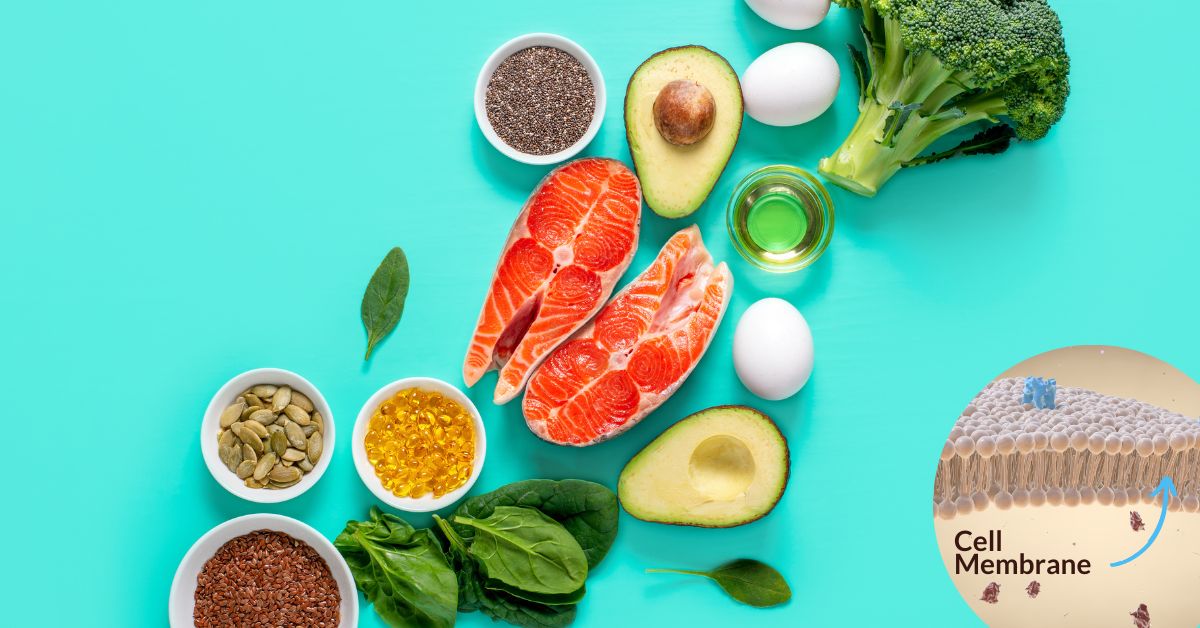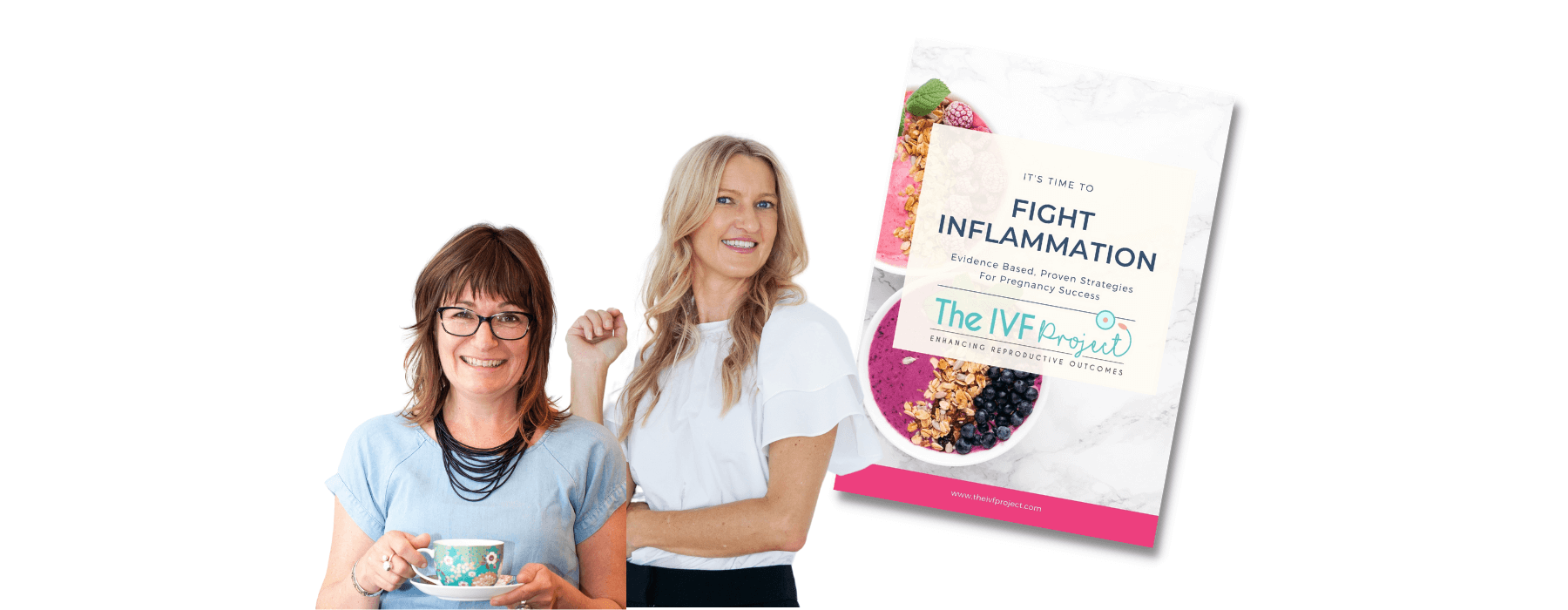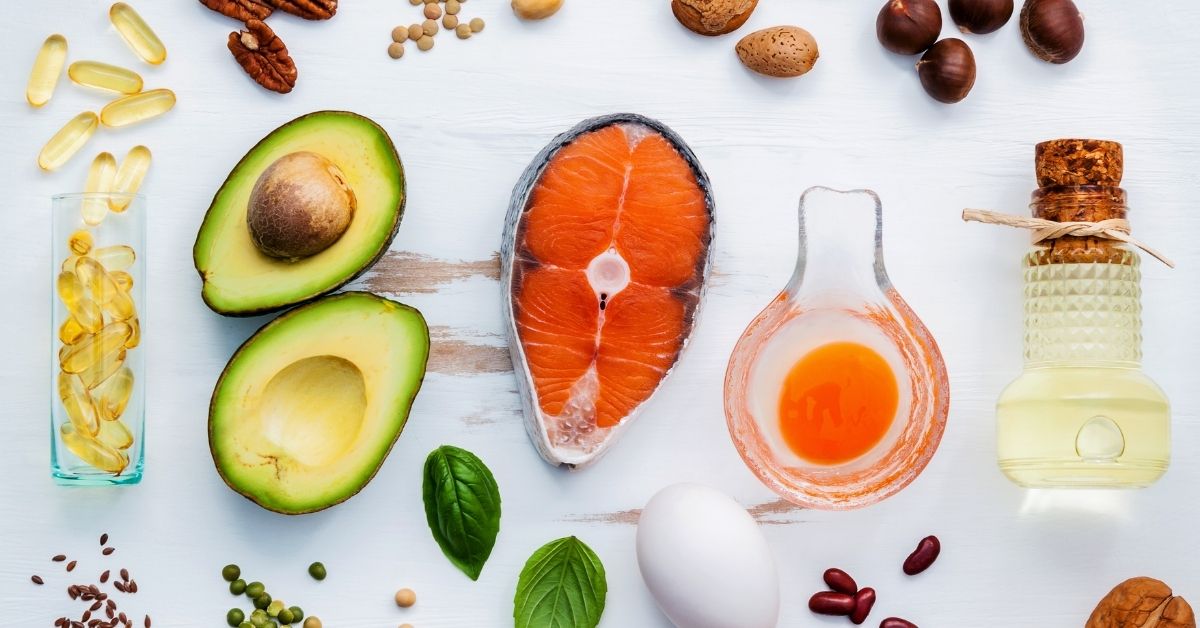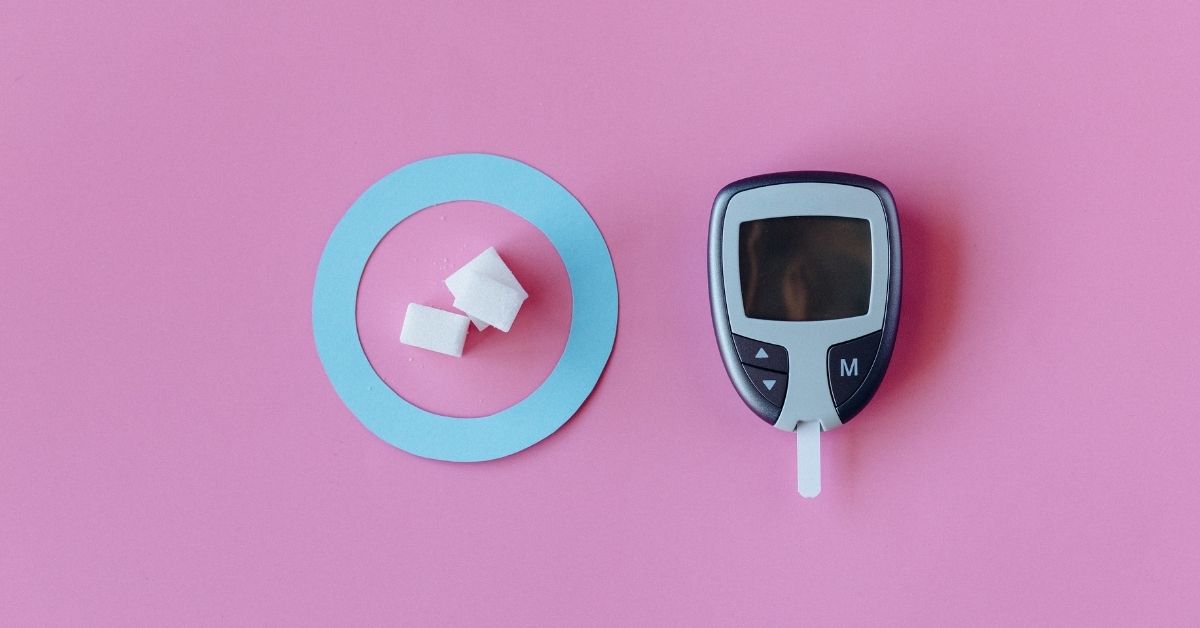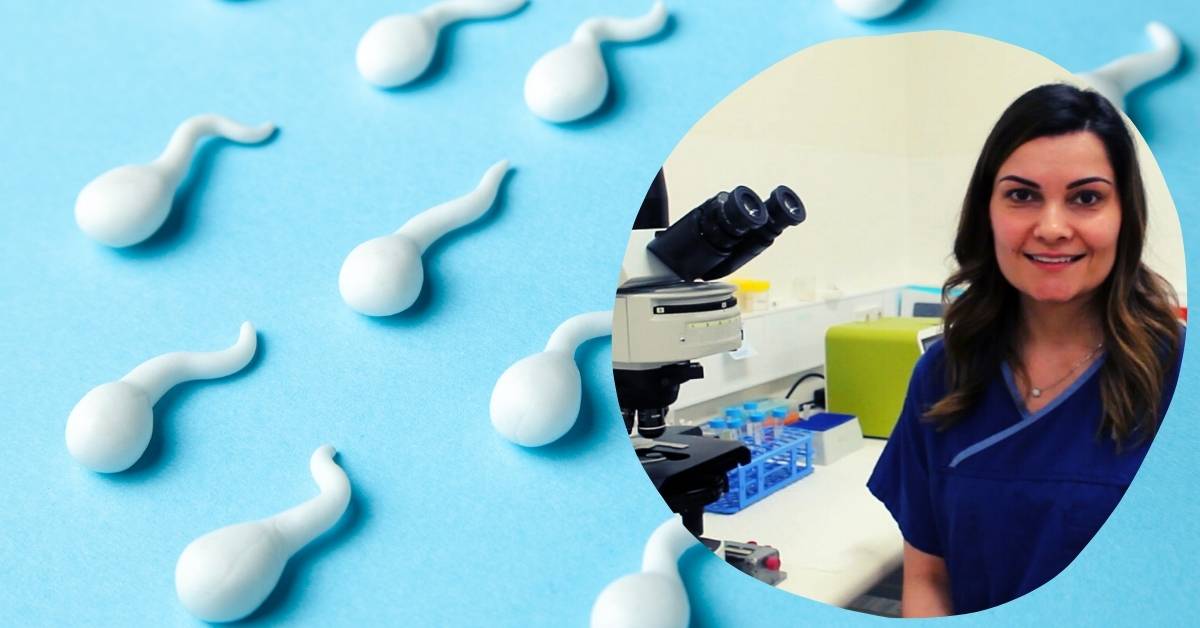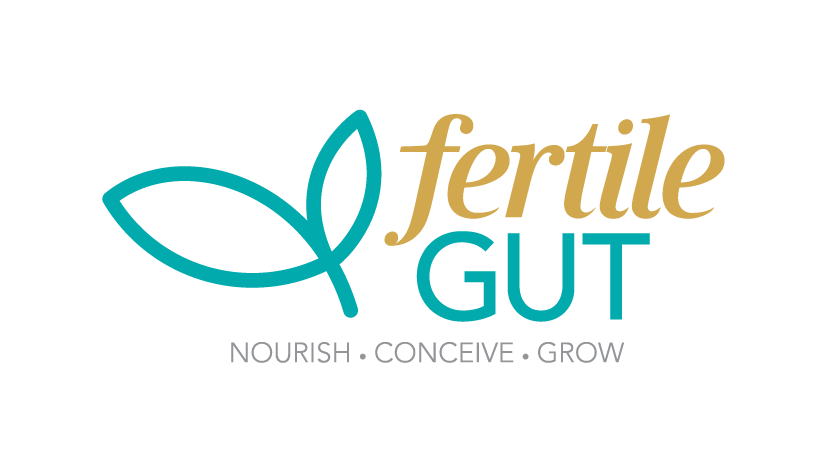|
If you were to peek through a microscope at the omega-3 and omega-6 fats, you’d see some pretty funky shapes, which are the manifestation of ‘kinks’ in their fatty acid structure. These kinky little fats don’t just look groovy, their kinked structure make them vital for health and proper brain, eye, cell, and immune system function (1). They also play an important role in early reproductive events including oocyte maturation and embryo implantation. So yeah, they’re a pretty big deal. The caveat: our bodies cannot ‘kink’ the omega-6 and omega-3 fats themselves, so we must obtain them from our diets, which is why we call them essential. You may have heard them called essential polyunsaturated fatty acids (essential PUFAs for short). Our bodies function optimally with a 4:1 or lower ratio of omega-6 to omega-3 kinky fats in our cell membranes (3,5). With the foods we often consume today, particular in Western cultures, omega-6 to omega-3 ratio is much higher at 10:1 to 50:1 (2,3). That’s a whole lotta omega-6 and a whole little omega-3. his is problematic, because omega 6 fatty acids have a strong pro-inflammatory effect, while omega 3 fatty acids are potent anti-inflammatories (4). In short, the further away your omega 6: omega 3 balance is from the optimal ratio, the more inflamed your body. Can Optimal Omega-6:Omega-3 Balance Improve my Fertility?Chronic low-grade inflammation is associated with infertility. Optimal omega-3 dietary intake dampens markers of inflammation and supports better sperm quality, is associated with improved egg health and increased pregnancy rate (6). Meanwhile, low intake of omega-3 fatty acids may reduce the chance of pregnancy (7, 8). Dietary omega-3 also has prebiotic effects on the gut microbiota, increasing the abundance of microbes that produce compounds supporting gut health (9), which we know is great for fertility ! What is My Omega-6:Omega-3 Ratio?These days finding out your omega-6:Omega-3 ratio is simpler than it’s ever been. Laboratories have developed test kits that you can complete in the comfort of your own home. Generally, the procedure looks something like this:
My Omega-6:Omega-3 Ratio is Higher Than the Optimal 4:1… What Do I Do?While your ratio might be higher than expected, you now have greater insight into your body. With this knowledge you can move towards an optimal omega-6:omega-3 balance for health and fertility. Some positive steps you may take include: 1. Increase your intake of omega-3 rich foods, particularly those from marine sources. Animal and Marine Sources: fatty fish (herring, wild-caught* salmon, rainbow trout, sardines), tuna, shrimp, yellow tailed king fish, cod, snapper, trevally, barramundi, dhufish, bream, whiting, squid, rock lobster, mackerel, seabass, mussels, scallops, crab, octopus, oysters, seal oil, omega-3 eggs, marine algae (*farmed salmon is also rich in omega-6, so this source alone may not provide you with the optima balance of omegas) Plant Sources: flaxseeds (linseeds), chia seeds, walnuts, spinach, brussels sprouts, blueberries, hemp seeds, kidney beans, tofu These plant sources are weaker sources of omega-3 compared to animal sources and marine algae, as the body’s ability to process them is inefficient. If you are vegan or vegetarian, we recommend supplementing with a quality marine algae oil – read step 3 for a definition of ‘quality’. 2. Lower your intake of omega-6 rich foods that aren’t balanced with some Omega-3s. High levels of omega-6 are found in cooking oils such as vegetable, safflower, sunflower, corn, soy bean, sesame and palm oil; fast food and ultra-processed foods are generally cooked in, and/or include an abundance of these oils. 3. Consider supplementing with an omega-3 + polyphenol blend Sometimes it’s just not possible to consume sufficient omega-3 intake from the diet, especially if wild caught fish is not accessible to you. In these instances, an effective, good quality supplement can be an excellent solution. Is My Omega Supplement Effective?In nature, omega-3 fatty acids are packaged with compounds called polyphenols. Omega-3 supplements containing polyphenols have been shown to enhance absorption of the omega-3 fatty acids by the body and preserve the anti-inflammatory properties of the supplement in addition to enhancing the antioxidant properties of the polyphenols (10). The presence of polyphenols also stops the omega-3 fats from going rancid (kinky fats have a very short shelf life). If you are going to take an omega-3 supplement, make sure it the source is good quality and it is packaged with polyphenols for optimal outcomes. It's All About BalanceA body able to effectively regulate inflammation supports fertility. Testing your omega-6 to omega-3 ratio provides valuable insight into inflammation and looking forward to healthy pregnancy progression. The World Health Organisation recommends an omega-6 to omega-3 ratio of 4:1 or less. If you would like to find out your omega-6, omega-3 kinky fat ratio, and receive personalised guidance and support for restoring balance, we would love to see you online or welcome you in the clinic! Written by Emily Hahn, APD References
No, we're not talking about that friend that is so fertile they 'didn't even try and just got pregnant' (this takes me back to the oh so many times I felt that intense mix of emotions you have to internalise while smiling on the outside. We have all been there!). The fertile friends we are talking about are with you every day. You carry them with you everywhere you go. You are even responsible for feeding them and how happy they are. Yes, we are talking about your gut bugs! The community of microbes that reside in your gut provide a foundation for your fertility. If you would like to get to know them better, here are four facts about these little guys and some tips to nurture them for pregnancy success! Microbes are in Charge of Your ImmunityAre you often sick, fatigued or stressed? These can be signs that your immune system is not firing on all cylinders. Our gut microbes are critical to healthy immune function so it’s no surprise that when our gut is out of balance, our immune defences suffer. Did you know our gut houses over 70% of our immune cells?! If your gut microbes are out of balance for a long time, this has even been associated with the development of autoimmune conditions that impact fertility, such as Hashimoto’s thyroiditis and systemic lupus erythematosus. Things that disrupt our gut microbiota may make us more susceptible to illness and dampen our viral immunity, while a healthy gut community affords protection against infection. Diets rich in antioxidant whole foods that nurture your gut diversity can boost your immune system and dampen inflammatory markers by more than 50%. Exercise is also a powerful anti-inflammatory and this in part is attributed to the beneficial changes at the level of the gut microbiota. A healthy gut can help reduce infections and keep your immune system in check, so it is ready unleash its anti-inflammatory defences. Your Microbes Regulate Sex HormonesOur gut microbes are essential in regulating our sex hormones that control ovulation, and sperm production. The metabolic activity of your microbes can increase or decrease circulating concentrations of oestrogen and in males a more diverse, healthy gut community is associated with increased testosterone concentrations. There are over 60 species of bacteria living in our gut that can regulate estrogen concentration. The collection of these bacteria is called our oestrobolome. One way we get rid of oestrogen from the body is in our faeces. How much oestrogen we excrete from our body, or how much we reabsorb back into our blood stream, is influenced by who is living in our gut, or our oestrobolome. If you have lots of bacteria that produce β-glucuronidase enzymes, these bacteria can deconjugate oestrogens in the gut so they are reabsorbed back into the circulation. On the other hand, if you don’t have enough of these bacteria that produce β-glucuronidase, then oestrogen gets excreted and circulating levels can be low. A diet rich in fat or protein is associated with reduce gut diversity and higher β-glucuronidase activity, whereas prebiotics have been shown to reduce this and rebalance oestrogen. This is one way diet impacts endometriosis, where there is disruption of the gut microbiome and higher oestrogen levels may drive the growth of endometriotic lesions. In females imbalances in gut microbiota can also contribute to increased androgens, elevating testosterone in conditions such as polycystic ovary syndrome (PCOS). Nurturing gut microbiota supports lowering of androgens and menstrual cycle regularity! It also increases sensitivity to the hormone insulin, which helps regulate blood sugar and is essential for ovulation and implantation. Your Microbes Manage Your MoodOne important job of your gut microbes is to produce neurotransmitters such as GABA, which are essential for mood. Beneficial bacteria can calm the mind and lower levels of stress hormones. In conditions where the gut microbiome is disrupted such as with endometriosis, PCOS and infertility, there is a greater risk of anxiety and depression. Have you ever eaten lots of processed foods and sugar and felt really blah (brain fog- cravings - fatigue - mood changes)? Well, there is a science to explain how food can influence your mood! Your gut talks to your brain so keeping your gut bacteria fueled with prebiotic foods is a great step to boosting mental wellbeing. Getting microbiota accessible carbohydrates and key gut loving nutrients into your diet has been shown to improve brain health and reduce depression.
|
|
1300 084 694
[email protected] Suite T36, 477 Boundary St Spring Hill, Brisbane QLD 4000 Fax. 07 3540 8164 Copyright © 2022
|

